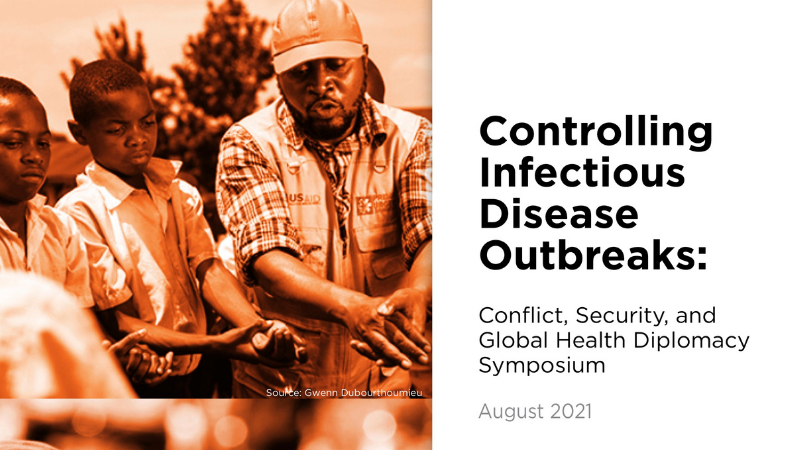-

Hear from Monica Toft, Academic Dean
Learn how Monica Toft, Academic Dean, is shaping the study of global affairs and diplomacy at Fletcher.
Hear from Prof. Toft -

Explore Fletcher academics in action
Fletcher Features offers insights, innovation, stories and expertise by scholars.
Get global insights -
Get application tips right from the source
Learn tips, tricks, and behind-the-scenes insights on applying to Fletcher from our admissions counselors.
Hear from Admissions -

Research that the world is talking about
Stay up to date on the latest research, innovation, and thought leadership from our newsroom.
Stay informed -
Meet Fletcherites and their stories
Get to know our vibrant community through news stories highlighting faculty, students, and alumni.
Meet Fletcherites -

Forge your future after Fletcher
Watch to see how Fletcher prepares global thinkers for success across industries.
See the impact -

Global insights and expertise, on demand.
Need a global affairs expert for a timely and insightful take? Fletcher faculty are available for media inquiries.
Get in Touch
Controlling Infectious Disease Outbreaks: Conflict, Security, and Global Health Diplomacy
A report that reflects on the discussions that took place during a virtual symposium on the challenges of controlling infectious disease outbreaks in conflict-affected states and how to address them.

In a three-day virtual symposium hosted by The Fletcher School, thirty five senior practitioners and experts from around the world considered the unique challenges of controlling infectious disease outbreaks in conflict-affected states, and steps that could be taken to address these challenges. Several threads ran through the discussion: the importance of contextual knowledge, including about the nature of the conflict, in planning for and executing an effective response; the danger of “over-securitizing” the response to what is a multi-sectoral crisis; the need to identify pathways of influence across all levels of government; and the demand for skills in “health diplomacy” — the ability to engage effectively with a multiplicity of actors in multiple settings, in a fast-changing, health-focused environment. With that backdrop, six broad themes emerged from the symposium.
How to Coordinate an Effective Response
Actions by all participants in the response potentially impact the health, political, security, humanitarian, and development initiatives of others. This is true before, during and after a health security crisis, making early and consistent coordination essential. Multi-level and multi-sectoral frameworks can help to overcome the obstacles to coordination in conflict-affected states.
How to Use International Law and Institutions to Strengthen the Response
International health, human rights, and humanitarian law can help to guide efforts to prevent and respond to outbreaks, and to rebuild in the aftermath. International institutions, through their programs and advocacy, are key actors in ensuring that the law is used to enable the necessary action, to structure an appropriate response, and to prevent violations of international standards.
How to Communicate and Engage with Local Populations
Populations in conflict-affected states often have low levels of trust in government and external intervenors. Two elements are essential to building trust: effective communication and engagement with local communities. This requires identifying the best “messengers,” building deep relationships with local actors in the early days of a crisis or, ideally, before the crisis, and establishing a feedback loop throughout the intervention.
How to Strengthen Health Systems in the Aftermath of an Outbreak
In the spirit of “not letting a crisis go to waste,” outbreaks in conflict settings present an opportunity to mobilize the political will and resources for long-term capacity strengthening of health care systems. When responding, peacebuilding should be linked to health capacity strengthening to address the “long tail” of population effects in the aftermath of the crisis.
How to Create a Model for Sustainable Funding
Sustainable funding in the context of conflict-affected states means: dedicating resources not only to the outbreak itself, but also to other local health priorities and for communities outside the immediate areas; being “smarter” about integrating programs, both vertically — from global to national to local actors — and horizontally across actors operating on the ground; and long-term health system capacity strengthening.
How to Manage Unintended Consequences of the Response
It is important to understand, manage, and mitigate the unintended consequences of an outbreak response, such as market effects (“the Ebola business”), politicization of the health crisis to achieve conflict-related goals, and the theft or diversion of resources.
Recommendations
Based on the discussion, the Steering Committee for the symposium extracted a set of actionable items to address the unique challenges of infectious disease outbreaks in conflict-affected states:
• Build trust with the local population
• Identify the appropriate role for security forces
• Design mechanisms for effective multi-sectoral coordination
• Incorporate health system strengthening in peace-building
• Educate the next generation of health diplomats

